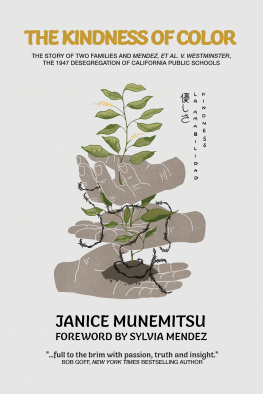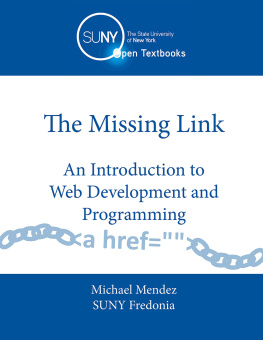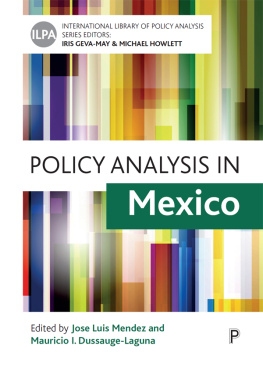2005 by The Kent State University Press, Kent, Ohio 44242
ALL RIGHTS RESERVED
Library of Congress Catalog Card Number 2004019208
ISBN 978-0-87338-822-4
Manufactured in the United States of America
08 07 06 05 04 5 4 3 2 1
LIBRARY OF CONGRESS CATALOGING-IN-PUBLICATION DATA
Mendez, Frank S., 1925
You cant be Mexican, you talk just like me / Frank S. Mendez.
p. cm.(Voices of Diversity)
ISBN 978-0-87338-822-4 (hardcover : alk. paper)
1. Mendez, Frank S., 1925
2. Mexican AmericansOhioLorainBiography.
3. ImmigrantsOhioLorainBiography.
4. Lorain (Ohio)Biography.
5. Lorain (Ohio)Ethnic relations.
6. Michoacn de Ocampo (Mexico)Biography.
I. Title. II. Series
F499.L8M46 2005
305.896872077123dc22 2004019208
British Library Cataloging-in-Publication data are available.
Foreword
JOHN J. GRABOWSKI, SERIES EDITOR
The story of immigration to and migration within America is one in which history and heritage are in constant competition. Because the recounting of coming here from some other place is so central to many of our lives or family histories, that saga becomes part of our heritage. Heritage, as David Lowenthal argues in his book The Heritage Crusade and the Spoils of History, is different from history in that it represents more of what we want to believe about ourselves than what actually happened.
The dynamic tension between heritage and history forms the foundation of Voices of Diversity, a new series of publications by the Kent State University Press. Voices of Diversity will republish, in English translation, existing memoirs and accounts of immigrant and migrant life in northeastern Ohio. It will also publish new first-person works relating to this topic. Frank Mendezs autobiographical account, You Cant Be Mexican: You Talk Just Like Me, is the first volume in this series.
Like any other memoir, this volume might, at initial glance, be considered an exercise in heritage rather than history, as it recounts what the author chooses to or is able to recall. Yet within the field of immigration history, the best autobiographies can serve as an antidote to the general aura of heritage that now tinges the American immigrant story. Personal accounts often provide a reality check to the pleasant generalities that tend to form the image of what we wish to believe about immigrants. They can challenge our concepts about family solidarity and the immigrant work ethic, and revise our image of the good old immigrant neighborhood.
You Cant Be Mexican does provide alternative views of such facets of immigrant life, but it also serves as what one might call a corrective to broader issues. Most importantly, it prompts us to think more carefully about our vision of the ethnic heritage of the industrial Midwest. There is a tendency to believe that the human fuel for the incredible industrial expansion around the Great Lakes in the late nineteenth and early twentieth century came from Europe, particularly from eastern and southern Europe. Indeed, the Paul Bunyan of the steel mills was named Joe Magaraca brawny fictional character from central Europe. One could argue that the ascription of a European immigrant character to the mills and factories of mid-America became stronger as the industrial era of the Great Lakes waned. Today, three generations distant from the great European immigration at the turn of the century, the descendants of those immigrants tend to celebrate their families contribution to industrial America. It is a mark of pride, in some ways every bit as potent as the pioneer heritage claimed by earlier generations of Americans. The opening of the museum at Ellis Island (the main gateway for the great European immigration) in 1990 signified the national acceptance of and pride in the European industrial migration to the United States. One could argue that today Ellis Island assumes the same mythical importance for these Americans as Plymouth Rock did one hundred years earlier for those who came from different European shores.
Certainly, the bulk of the labor in industrial mid-America was European or African in origin. However, Frank Mendez reminds us that the history of the region is more diverse. Mendez tells us that industrial communities such as Lorain were more polyglot than we tend to remember. He also tells us other things that somehow get lost in the way we view immigrant heritage. Yes, his parents worked the fields. That fits the image we have of Mexican immigrants. But they also came to the mills and factories of the Midwest. Many contemporary Americans find this surprisingjust as surprising as the fact that Chicago had one of the largest Mexican populations in North America in the 1920s. Mexican immigrants picked crops, but they also made steel in Lorain and Gary and Chicago and built automobiles in Detroit. Certainly the surge in Chicano and Latino historical studies in the past three decades has filled out this story in the corridors of academe, but in the corridors of Midwestern heritage it is not a widely recognized story. For many Americans, Mexicans are new immigrants confined in large part to the service industries of America. They are not totally so now, nor were they in the past that is described in this memoir.
Frank Mendez opens his memoir with a powerful family tale about the manner in which his father escaped the violence of the great Mexican Revolution. Here again relating a personal heritage serves as a means to illuminate history and to bring a fresh perspective with which to view generalizations about immigration. Natividad Mendez fled one of the largest and most violent revolutions in the Americas in the twentieth centurya decade-long revolt that cost tens of thousands of lives and forever changed the nation of Mexico. It was not unlike the revolts, famines, wars, and persecutions that set many Europeans in motionevents that are forever fixed in the popular and scholarly story of that phenomenon. In an era when some are tempted to see Mexicans solely as economic migrants, Frank Mendez causes us to reexamine a popular image and, perhaps, to become more curious about a nearby but largely unknown aspect of a shared continental history.
In these and other ways, You Cant Be Mexican opens new perspectives on the immigrant history of northeastern Ohio and challenges readers to think again about how we choose to characterize a region, a period of time, and a group of people. That is one of its values. However, its chief value remains in the fact that it is a memoir in which the story of one family, and one individual, Frank Mendez, is played out against a backdrop of local, national, and international events. As individuals interested, likely as not, in our own histories and heritages, we identify with the story he relates and become involved and concerned with some of the key issues of the immigrant. As Frank Mendez moves from field to town, from school to the military, and then to a career, we, like he, are prompted to look closely at how we have decided to see ourselves in a region, nation, and world layered with diverse identities and to ask how our heritage fits into that regions history.











